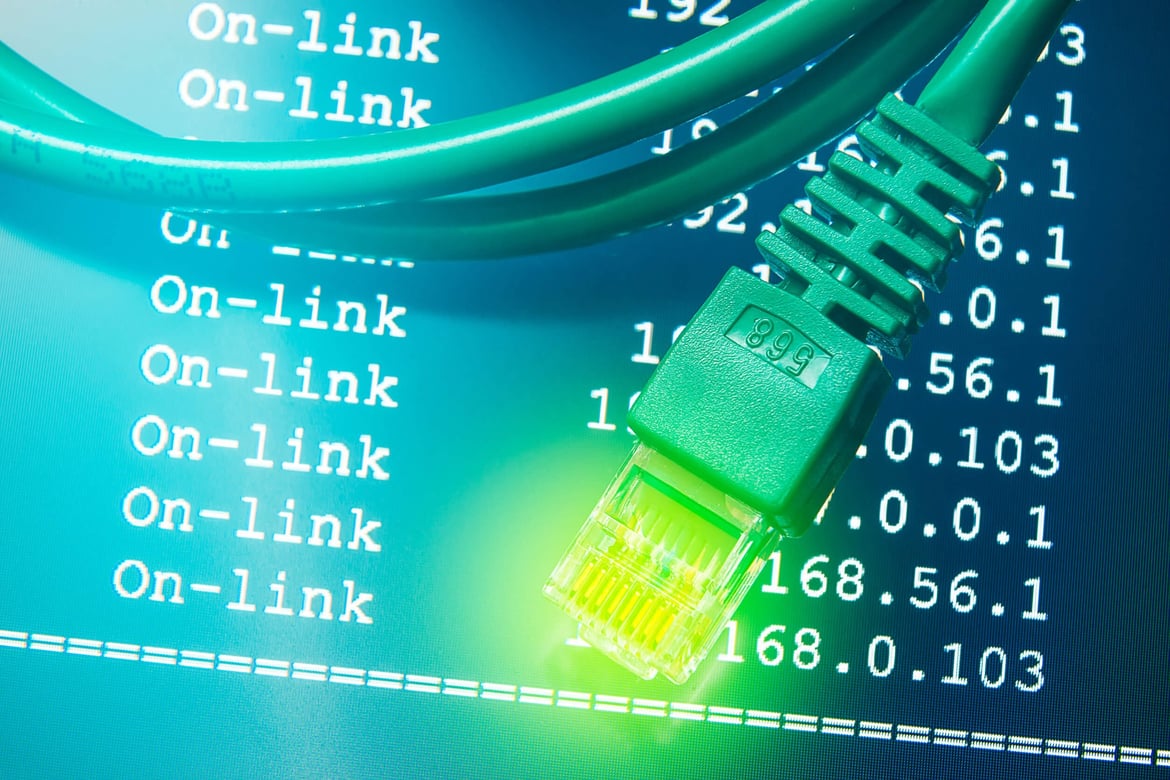Why is IP Address Data Important for Cybersecurity & Threat Intel?
Date: 1 June 2022

We live in the age of technology, and most of us are constantly connected to the internet. In fact, the majority of companies (and individuals) couldn’t function without technology today and that brings with it a level of risk the world has never known before.
Cybersecurity threats and ransomware attacks are everywhere and individuals as well as large businesses are susceptible to them. IP address data is one of the most effective weapons that governments and organisations have in their arsenal to battle against cyber threats, and to ensure cybersecurity.
In this article, we explore the significant role that IP Address data plays in Threat Intelligence and Cybersecurity.
What exactly is Threat Intelligence?
Before we jump into the details of IP Address Data and the role it can play in cybersecurity, let's understand what Threat Intelligence actually refers to.
Threat intelligence refers to information and strategy that can help businesses and governments make better decisions when it comes to handling cyber threats. Strategic threat intelligence involves gathering data, such as the locations of attacks hitting organisations, and patterns in both the targets and locations of companies.
For instance, if there has been a spate of cyber-crimes against people with a political affiliation, one can analyse the situation if one has intel about the location of the attackers, time of attack etc.
What is IP Reputation in the Context of Threat Intelligence Data?
IP data can be gathered and collected to create tools for us to use in threat analysis. IP reputation is one way of establishing these risks. IP reputation is based on market insights and data that has been connected from millions, even billions of queries from industries such as financial services and OTT content.
When an IP address appears in a lot of different negative queries and connections, it is identified as a risk and given an IP reputation.
IP reputation is often scored from 1 to 100, and using an IP address lookup companies can establish the danger of a specific IP address or IP location. The higher the number attached, the more perceived the risk on this scale. This means we can form an overview of the risks associated with IP addresses and even IP locations.
What is IP Geolocation in Cyber Security?
IP geolocation is growing in importance in the cybersecurity industry, and it can be another weapon in the defence against cyberattacks. Whereas an IP address is a physical address, you can identify where the connection happens using IP geolocation. For example, when an IP address connects to a specific router or public Wi-Fi system, geolocation APIs track the physical location of the connections IP addresses are making, and this can be used for the following purposes:
- Identifying where datacenter proxies or scrapers are connecting from.
- Changing the content or even blocking certain types of content depending on where someone is connecting from.
- Blocking any IPs that are coming from a hotspot for fraud or other negative cyber activities.
- Spotting patterns and identifying fraud or attempts on your system and immediately putting your cyber incident response plans into action.
Geolocation data can include things like the city or country of the connection, the internet provider, VPNs that the user may be connected to, and even longitude and latitude coordinates.
This data can also be used to combat DDoS or “Distributed Denial of Service” attacks, by helping to find an application as well as the IP locations of the machines making the attacks.
It is even possible to take real-time data while an attack is ongoing, and allow ISPs to block out attackers or specific locations while the attack is happening. In order to this successfully, make sure your incident response team is well trained to deal with such situations. Conducting a cyber crisis tabletop exercise with a DDoS attack as the scenario can help your team better understand how they can deploy IP Address Geolocation to thwart cybercriminals during an attack.
The chance of kicking a few legitimate users off your site or network to prevent an attack is worth taking for many businesses.
Uses of IP Address Data in Cybersecurity
Cybersecurity as a field needs to consistently innovate and embrace new tools and technologies that can help ward off cyber-criminals. Those working in the field are always trying to find new ways to gather data and prevent risk simply because when (and not if) an organisation is attacked, it can cost millions of dollars and hard-earned public reputation and customer trust.
IP address data is one of the most useful tools available to cybersecurity professionals, and is known as an “IoC” or Indicator of Compromise. IoCs refer to the important data that can create a risk assessment for you, so you can quickly find and respond to any attacks that are happening on your system.
An IP address isn’t like a digital passport, and unfortunately you can’t use this data to find exactly who is making an attack, or how, but it can be used to triangulate where a user is and can act like another piece of armour in your war chest.
Used strategically as part of your cybersecurity strategy, IP address tracking and geolocation can be very helpful, and the fact that other companies are already gathering this data and helping to provide the warning signs makes it easier for new businesses and takes some of the burden away.
To efficiently pinpoint the origin of cyber threats or fraudulent activities, leveraging third-party tools can enhance the accuracy and ease of interpreting geolocation data. Abstract free IP geolocation API offers developers a robust solution to seamlessly locate, track, and analyze 4 billion+ IP addresses worldwide. Use such advanced technologies to fortify your cybersecurity defenses against cybercriminal origins with reliable IP address information.
Conclusion
In threat intelligence, IP addresses are one of the best tools out there. Ask anyone involved in threat management and cybersecurity and they will tell you that you must incorporate it into your security strategy.
Remember that cyber threats can cost you a fortune, and in some instances, they could cost you your whole business. It is not something to take chances or risks with, and IP addresses have a vital role to play in this risk mitigation strategy.
About the Author: Ezra Bishop
Ezra Bishop is a User Experience Expert at WhatIsMyIpAddress.
He helps customers learn how things operate and enjoys sharing his knowledge and experiences through blogging.







